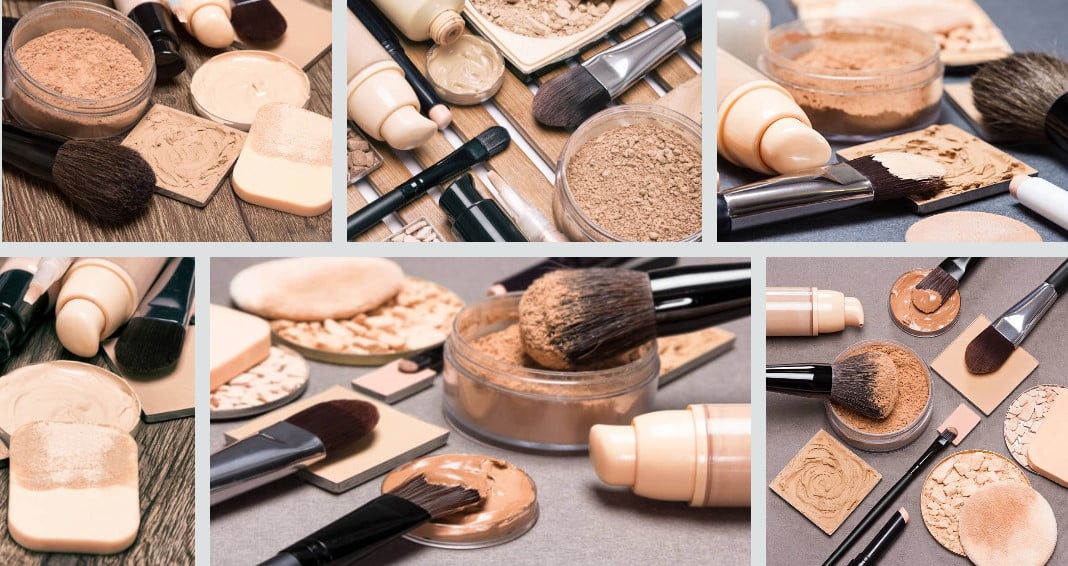Foundation for Sensitive Skin: Coverage without the Irritation
Finding the right foundation is a journey for anyone, but if you have sensitive skin, it can feel like a full-time job. Sensitive skin often reacts to ingredients in makeup, leading to redness, irritation, and flare-ups that no one wants. But don’t worry; having a complexion that’s more reactive doesn’t mean you need to compromise on coverage or finish. There are gentle, effective foundations out there that offer a natural look while safeguarding your skin. This article will explore the essentials of foundation for sensitive skin, including tips on choosing the best product, avoiding irritation, and achieving the flawless finish you desire.
Key Takeaways:
- Sensitive skin foundations prioritize soothing ingredients and avoid common irritants.
- Applying makeup on a well-prepped base minimizes sensitivity and prolongs wear.
- Mineral-based and fragrance-free formulas are often safer options.
- Test patches are essential for preventing unwanted reactions.
- Full face makeup with sensitive skin is achievable by layering carefully selected products.
1. Understanding Sensitive Skin
Sensitive skin is more reactive to environmental and product-based factors. Individuals with sensitive skin may experience tingling, burning, or itching when exposed to certain ingredients. Reactions can vary, so what works for one person may not work for another. Knowing the triggers for sensitive skin is crucial when choosing face makeup, particularly foundation, which directly contacts the skin.
2. Key Ingredients to Avoid
If you have sensitive skin, some ingredients are more likely to cause irritation than others. Common irritants in makeup products include fragrances, alcohol, parabens, and sulfates. Foundations that incorporate these ingredients are best avoided as they can inflame sensitive skin. Opt instead for products labeled “fragrance-free,” “hypoallergenic,” or “non-comedogenic,” as these tend to be gentler.
3. Beneficial Ingredients for Calming Skin
Not all ingredients are problematic. Some additives can actively soothe sensitive skin. Look for foundations enriched with calming ingredients like aloe vera, chamomile, and green tea extract, known for their anti-inflammatory properties. Hyaluronic acid is another excellent choice, as it hydrates without irritation, creating a plump, smooth canvas for face makeup.
4. Mineral-Based Formulas: A Safe Bet
Mineral-based foundations are often recommended for sensitive skin. They are typically free from synthetic chemicals and harsh additives, offering a natural approach to coverage. Minerals like titanium dioxide and zinc oxide not only provide sun protection but also have anti-inflammatory properties, which can soothe sensitive skin while providing a beautiful finish.
Table: Comparing Foundation Types for Sensitive Skin
| Foundation Type | Benefits | Potential Drawbacks |
|---|---|---|
| Mineral-Based | Natural SPF, anti-inflammatory | May feel drying on very dry skin |
| Liquid, Fragrance-Free | Hydrating, suitable for all-day wear | Limited shade range in hypoallergenic |
| Powder | Oil-absorbing, matte finish | Can emphasize dryness |
| BB and CC Creams | Lightweight, often contains SPF | Lighter coverage, less shade variety |
| Serum Foundation | Hydrating, glowy finish | May not suit oily or combination skin |
5. Choosing the Right Shade
Once you’ve narrowed down a formula, it’s time to select the right shade. For a natural look, choose a foundation that closely matches your skin tone. Test a small patch along your jawline or the inner wrist to see if the shade and formula work for you. Some foundations may oxidize and become darker after application, so allow time to see how it adapts to your skin.
6. Prepping Sensitive Skin for Makeup
Proper skin prep is essential for full face makeup on sensitive skin. Start with a gentle cleanser, followed by a soothing, fragrance-free moisturizer to create a smooth, hydrated base. Using a primer designed for sensitive skin can also help by creating a barrier between your skin and the foundation. Look for a hydrating primer with ingredients like glycerin, which helps hold makeup in place without causing dryness or irritation.
7. Application Tips for Sensitive Skin
Application techniques can significantly impact how makeup sits on your skin. Opt for clean hands, a damp beauty sponge, or a high-quality foundation brush to apply your product. Applying foundation with minimal friction and using gentle patting motions can reduce irritation. For sensitive skin, less is often more; start with a small amount and build up coverage gradually.
8. Achieving a Flawless Full Face Makeup Look
Sensitive skin can still rock a full face makeup look with careful product selection and layering. After applying foundation, use a hypoallergenic concealer for targeted coverage. Follow with powder (if your skin type allows), blush, and bronzer—select products formulated for sensitive skin to maintain comfort throughout the day. Eyes makeup, particularly eyeliner and mascara, should also be chosen carefully to prevent eye irritation.
9. Setting and Finishing Products
A setting powder or spray helps keep makeup in place but can sometimes be problematic for sensitive skin. Consider using a mineral-based setting powder for a gentle mattifying effect. Alternatively, a hydrating setting spray can lock in makeup without drying or irritating the skin. Look for products labeled for sensitive skin, free from alcohol and fragrance.
10. Removing Makeup Gently
Removing makeup properly is just as important as the products you apply. Opt for a gentle makeup remover that doesn’t strip or irritate the skin, such as a micellar water or oil cleanser. These options effectively break down face makeup, eye makeup, and lips makeup without requiring excessive rubbing or harsh chemicals.
FAQs
1. Can I use foundation every day if I have sensitive skin?
Yes, but it’s crucial to choose a formula designed for daily wear and sensitive skin, with gentle, non-irritating ingredients.
2. What should I do if my skin reacts to a foundation?
Discontinue use immediately, and treat your skin with a calming moisturizer or hydrocortisone cream if needed. Consider patch-testing new products in the future.
3. Are there specific types of makeup tools for sensitive skin?
Yes, opt for soft brushes or damp sponges that minimize friction. Make sure to clean tools regularly to avoid bacterial buildup that can irritate the skin.
4. Can sensitive skin wear full face makeup?
Absolutely. By selecting hypoallergenic products and layering carefully, sensitive skin can achieve a full face look without issues.
5. How can I prevent foundation from causing breakouts?
Use non-comedogenic, fragrance-free formulas and always remove makeup thoroughly at the end of the day.

